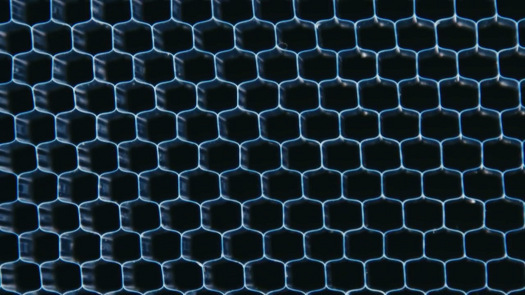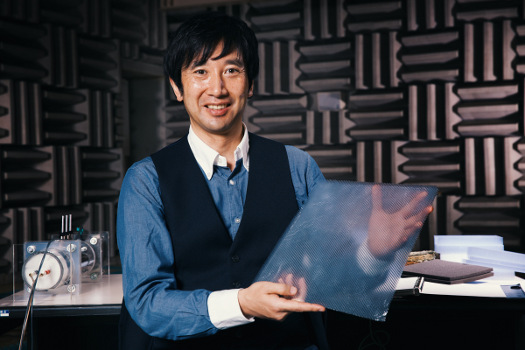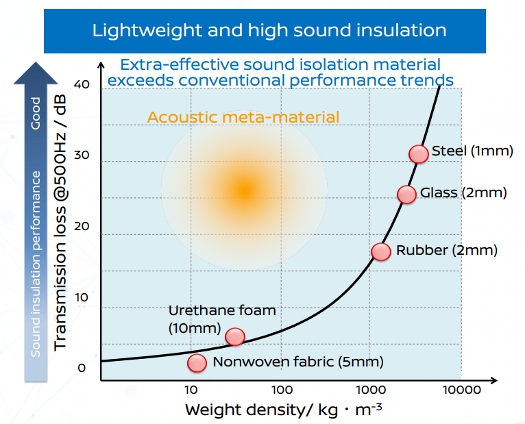 |
| January 21, 2020 | Volume 16 Issue 03 |
Designfax weekly eMagazine
Archives
Partners
Manufacturing Center
Product Spotlight
Modern Applications News
Metalworking Ideas For
Today's Job Shops
Tooling and Production
Strategies for large
metalworking plants
Nissan develops lightweight noise-reducing meta-material

Nissan showed off a nifty new material at this year's CES trade show that can help make car cabins quieter while also boosting energy efficiency. The makeup of the new acoustic meta-material is simple, but its potential is wide ranging for vehicular applications. This is especially true for electric vehicles, which have little to no "engine noise," since their power comes from electric motors, but this quietness can actually make road noise more apparent.
Making vehicles lighter helps limit the environmental impact of driving by improving energy efficiency. It also enhances enjoyment, because the quiet vehicle cabin makes driving more comfortable.

Nissan's new lightweight acoustic meta-material sound insulation is made up of a combination of a lattice structure and plastic film that controls air vibrations to limit the transmission of wide frequency band noise such as road and engine noise.
How does it work? Meta-materials are synthetic materials with properties that cannot be found in nature. In this case, a combination of a plastic lattice structure and plastic film controls air vibrations to limit the transmission of wide frequency band noise (from 500 to 1,200 hertz), such as road and engine noise. When noise hits the material, the material bounces back, reducing the noise that passes through the material.
Currently, most materials used to isolate this frequency band consist mainly of heavy rubber board. Nissan's new acoustic meta-material weighs one-fourth as much as these while providing the same degree of sound isolation.

Susumu Miura, Nissan's advanced material engineer, shows off the new noise-reducing material.
Because of its simple structure, the material's cost competitiveness in terms of mass production is almost the same as, or possibly better than, current materials. Therefore, the material can also be applied to vehicles where the use of sound insulation materials is currently limited due to cost or weight.
VIDEO: Nissan develops new Ariya Concept with acoustic meta-material for outstanding noise insulation. (Click the "CC" button in the right-hand lower corner of the video to switch on closed captions in English.)
Nissan started its in-house research on meta-material technology around 2008. At the time, meta-material was primarily used in high-sensitivity antennas for electromagnetic wave research. Nissan worked to extend the applicability of meta-material technology to include sound waves, leading to the successful invention of the acoustic meta-material.
Source: Nissan
Published January 2020
Rate this article
View our terms of use and privacy policy

